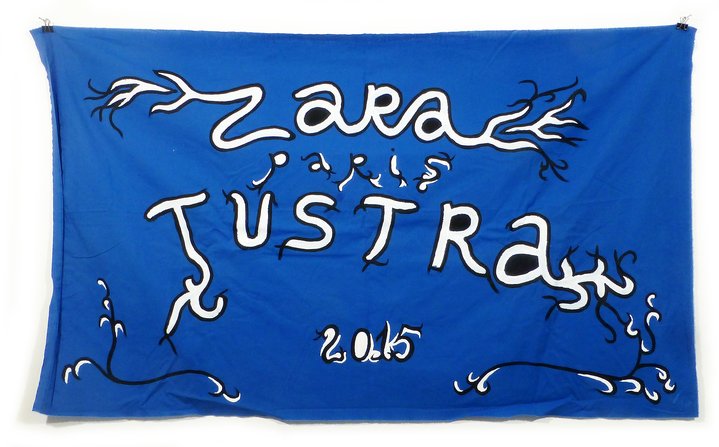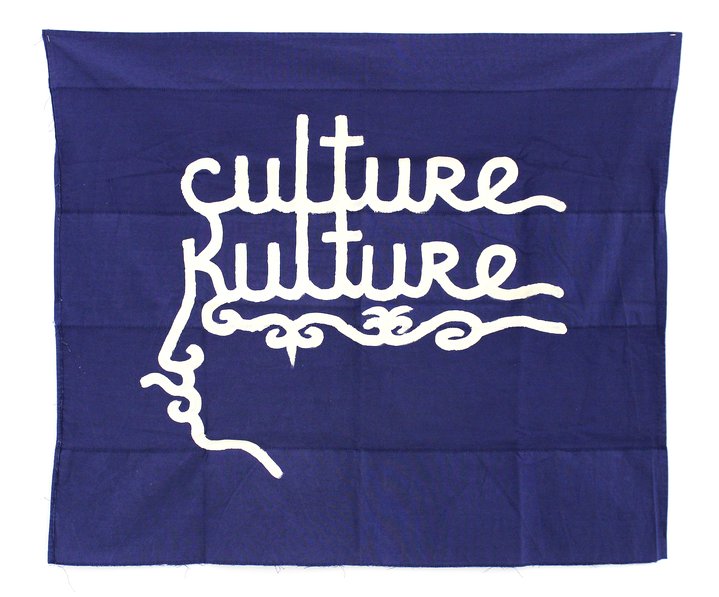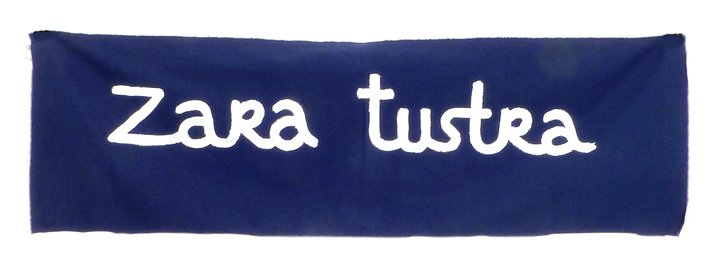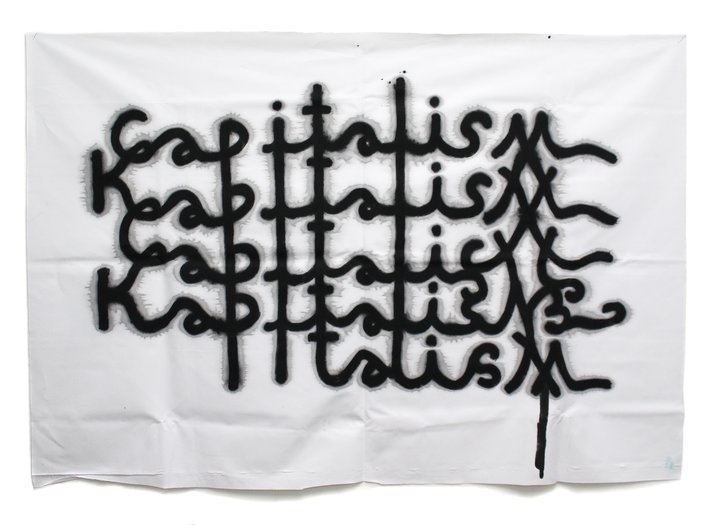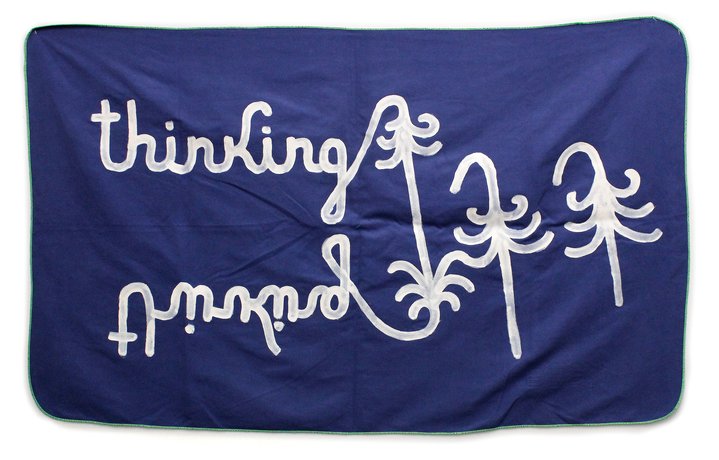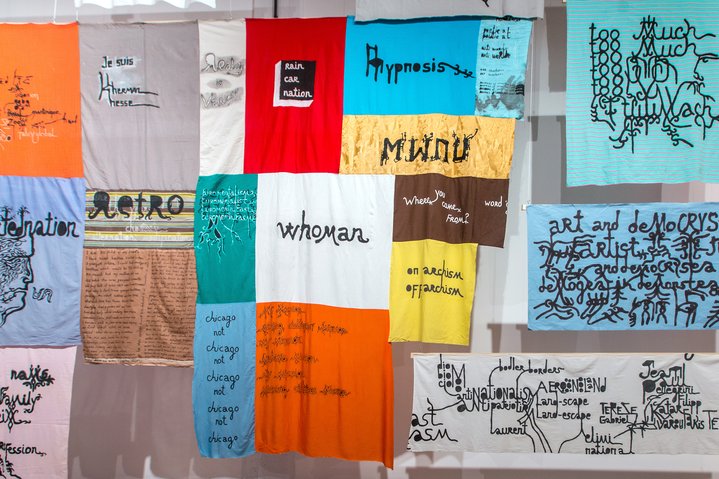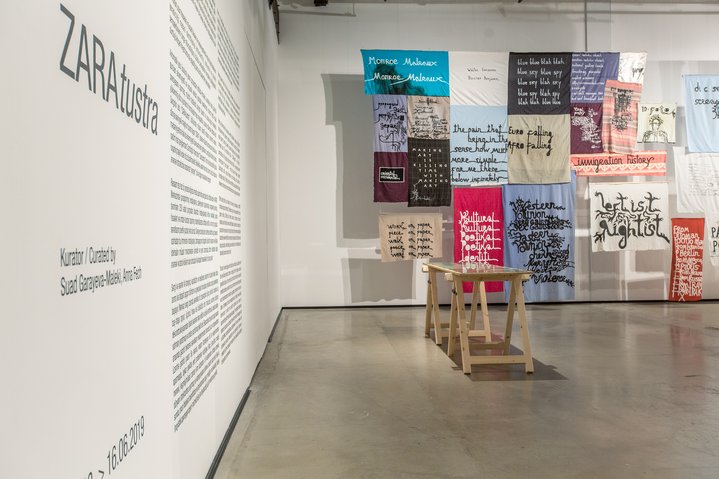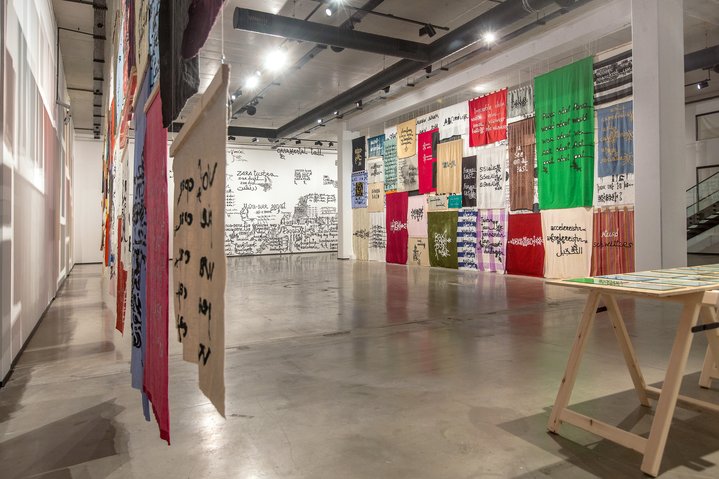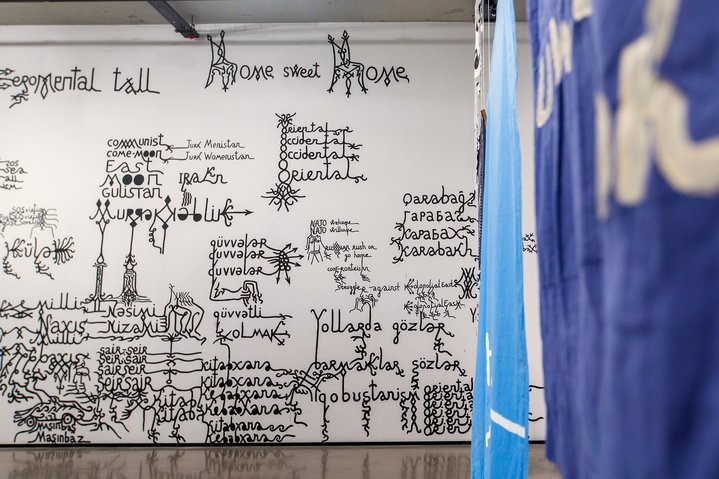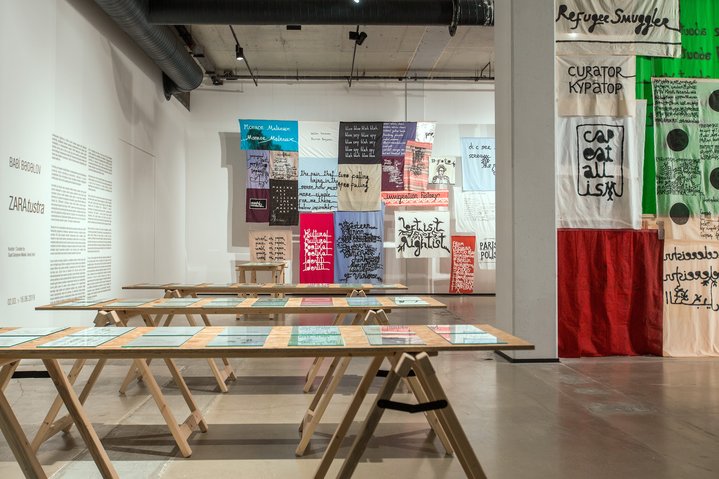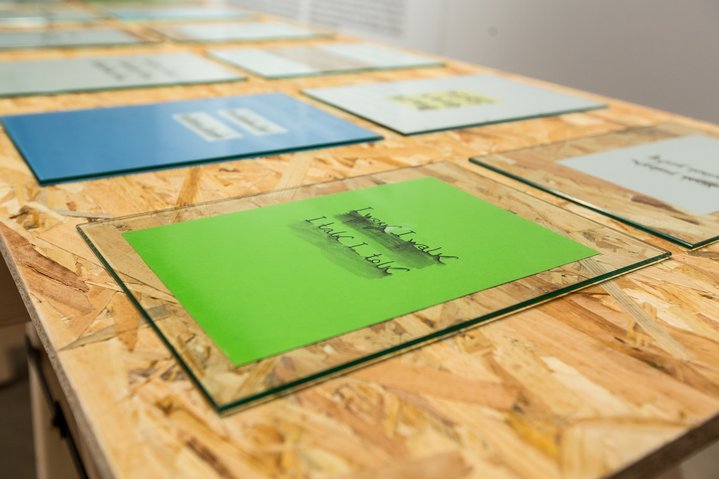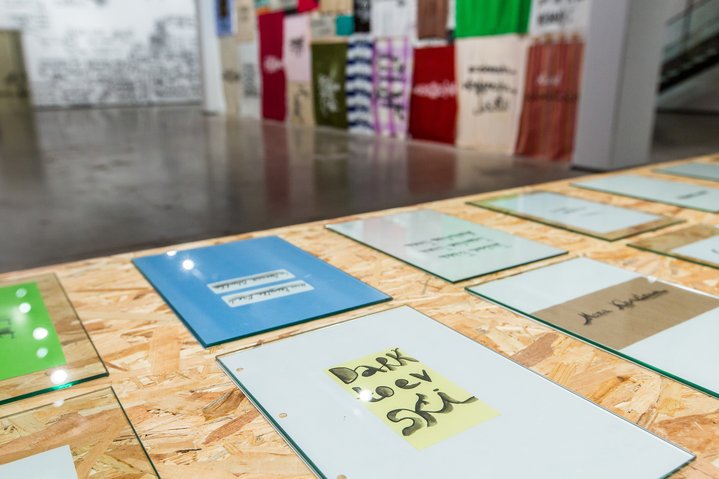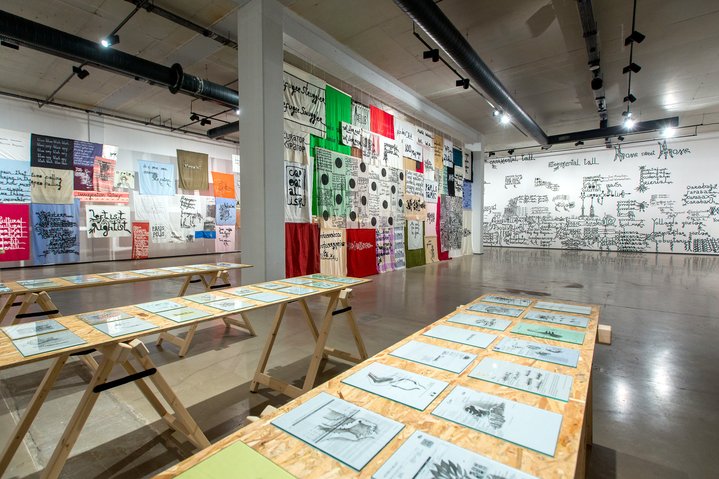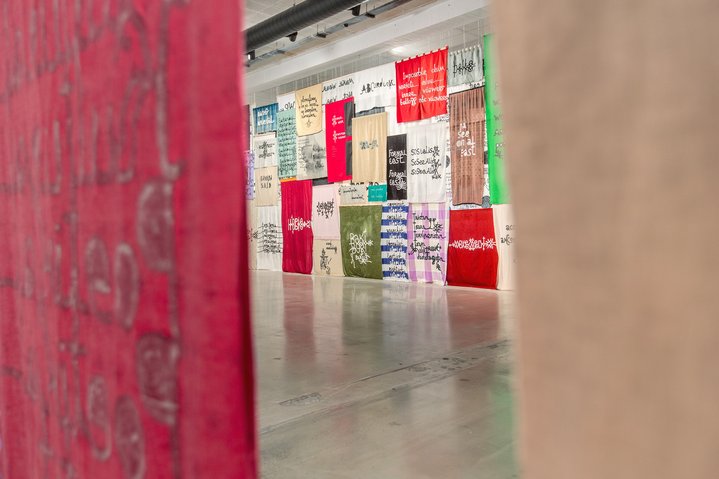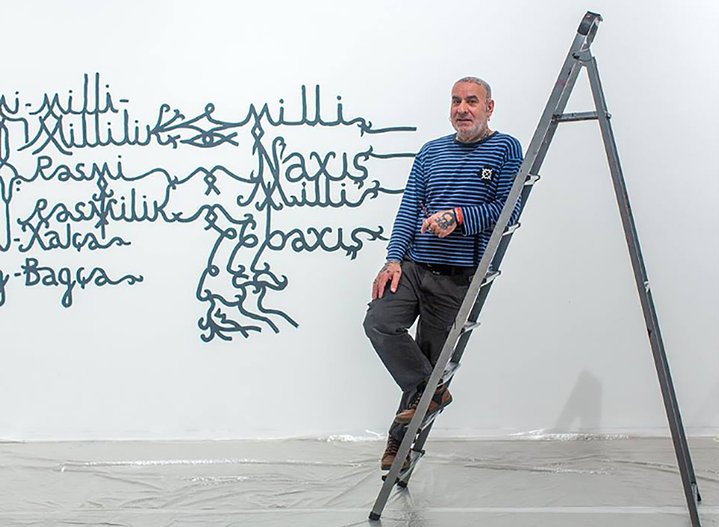Babi Badalov: coming home at long last

The Azerbaijan-born artist and poet, who was a part of the Russian art scene for years and is currently based in France, has opened the first large-scale solo show in his home country.
Babi Badalov’s life is a never-ending journey. He has won international recognition for his projects dedicated to refugees, a topic, for whom he feels a keen and in no way academic interest. He himself has refugee status in France, where he has lived for the last 10 years. Born in 1959 into a poor family of 10 in a small village, the homosexual artist felt out of place in this patriarchal environment from an early age. (Homosexuality was a criminal offence in USSR. It was only decriminalized in Azerbaijan in 2000). He learnt Russian while on his compulsory military service in the outskirts of Moscow.
In the early 1980s, he managed to settle in Leningrad, the city of his childhood dreams, the capital of Russian culture and the hometown of his hero, Dostoevsky. His dream of entering what was then known as Leningrad’s Academy of Arts was never fulfilled, yet Badalov managed to obtain an education which was much more progressive, albeit informal. He started mixing with Leningrad’s vibrant underground art scene. Its main protagonists — the artists Yuri Gurov, Valentin Savchenko, Vadim Ovchinnikov and Oleg Kotelnikov — became his friends and mentors. “I was born as an artist in Russia,” he once told me. It was back then that he started to develop his own style, a unique combination of multilingual wordplay, conceptual art and calligraphy. When Gorbachev introduced Perestroika, he managed to move to United States and later to the UK, where he was deported to Azerbaijan. In 2008, he finally settled in France. His projects were displayed at the Manifesta Biennale in Mursia in 2010 and the Gwanju Biennale in 2016. He also had solo exhibitions in Paris, at the Palais de Tokyo and the Centre Pompidou.
Badalov’s peculiar linguistic constructions often blend Russian and English words together. In order to get his politically-charged puns, the viewer has to have sufficient command of both languages. Yet his signature handwriting, elegant and orientalized, is strangely at odds with the very substance of both Russian and English. “My mission mixing cultures,” he stated in one of his works, with characteristic neglect of grammatical rules. Badalov’s preferred medium is total installation. He enjoys filling rooms with words. Written on textile banners and on the walls themselves, they cover the space from floor to ceiling, interspersed with pages torn out from newspapers and magazines. Basically, each exhibition with its complex mosaics of overlapping textiles and meanings is a spatial poem that has neither beginning nor end. The new exhibition at Baku’s Yarat art centre is no exception. Its title, "Zara Tustra," is one of Badalov’s typical puns, which blends a mass-market clothing brand and the name of the ancient Persian prophet of Zoroastrianism. A total of 250 textiles covered with his ornamental handwriting hang down from the gallery ceiling. They include pieces of old curtains, sheets and other found materials. The Babelesque mix of languages (mostly English, but peppered with bits of Russian, French and Azerbaijani) spills over into a gigantic calligraphic mural, a site-specific work.
As always, Badalov questions the boundaries between local tradition and the demands of the contemporary globalized world, the superficial meaning of words and their inner implications. Yet this time he does it on his home soil, which he had struggled to avoid for so many years. That’s why in Baku, his deconstructed words and often naïve puns, juggling of meanings and fanciful handwriting acquire a level of bitterness and tenderness they never had before. If only for a short while, Babi is home at last.
As always, Badalov questions the boundaries between local tradition and the demands of the contemporary globalized world, the superficial meaning of words and their inner implications. Yet this time he does it on his home soil, which he had struggled to avoid for so many years. That’s why in Baku, his deconstructed words and often naïve puns, juggling of meanings and fanciful handwriting acquire a level of bitterness and tenderness they never had before. If only for a short while, Babi is home at last.






